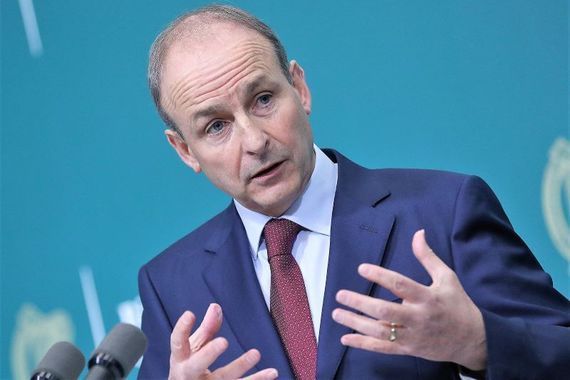The United Kingdom Government has formally written to the Irish Government to express regret over Dublin's decision to take legal action over the Troubles Legacy Act, which aims to grant conditional immunity to those accused of Troubles-era killings.
Northern Ireland Secretary Chris Heaton-Harris has written to Tánaiste and Irish Minister of Foreign Affairs Micheál Martin to question the Irish Government's decision to challenge the Legacy Act in the European Court of Human Rights.
The letter also challenges Martin to list the number of prosecutions mounted in the Irish State since 1998 related to incidents that occurred during the Troubles.
Heaton-Harris has additionally pressed the Irish Government to answer questions regarding its own record on tackling Troubles-era incidents since the signing of the Good Friday Agreement in 1998.
British Ambassador to Ireland Paul Johnston issued the letter to Martin on Sunday evening.
The UK Government's Troubles Legacy Act has been criticized by victims groups in Northern Ireland in addition to major parties on both sides of the political divide.
The act aims to grant conditional immunity to those who cooperate with the newly established Independent Commission for Reconciliation and Information Recovery and will also halt civil cases and legacy inquiries.
Taoiseach Leo Varadkar said in December that the Irish Government was left with "no option" but to challenge the Act in the European Court of Human Rights.
Martin also addressed the issue in December, stating that the Irish Government was reluctantly taking legal action after failing to persuade the UK Government to change its mind.
In a statement to the PA News Agency, the UK Government's Northern Ireland Office confirmed that Heaton-Harris had penned a formal letter to Micheál Martin.
"The Secretary of State, in his letter, repeats his call for the Irish Government to clarify the number of criminal prosecutions brought in Ireland since 1998 relating to Troubles-related cases, and presses the Irish Government more widely to answer questions regarding its own record on tackling legacy issues in its own jurisdiction," the Northern Ireland Office said in a statement.
"The decision also comes before the Independent Commission for Reconciliation and Information Recovery, led by Sir Declan Morgan as chief commissioner, is fully established and able to demonstrate its ability to discharge the UK's international obligations.
"The UK government reasserts its particular disappointment that the Irish Government has taken this course of action without, to date, any engagement with the ICRIR to understand better how it intends to implement the legislation and deliver for victims and survivors."




Comments